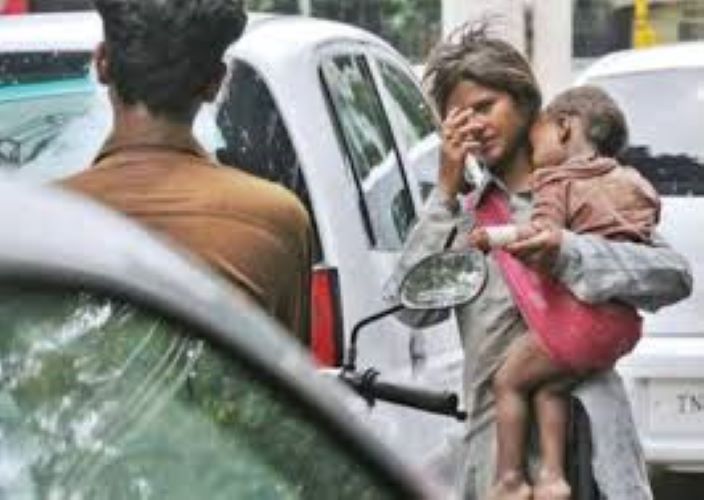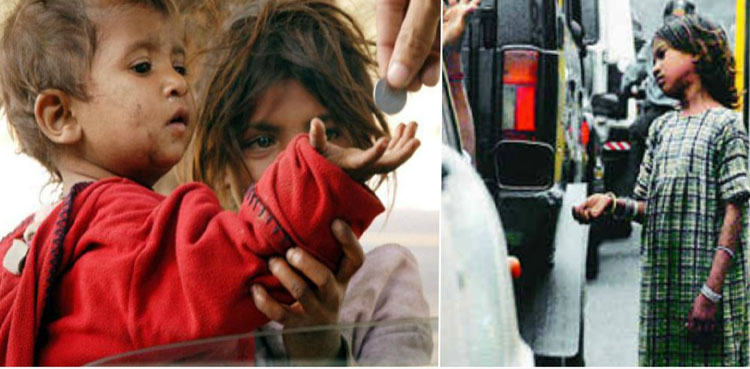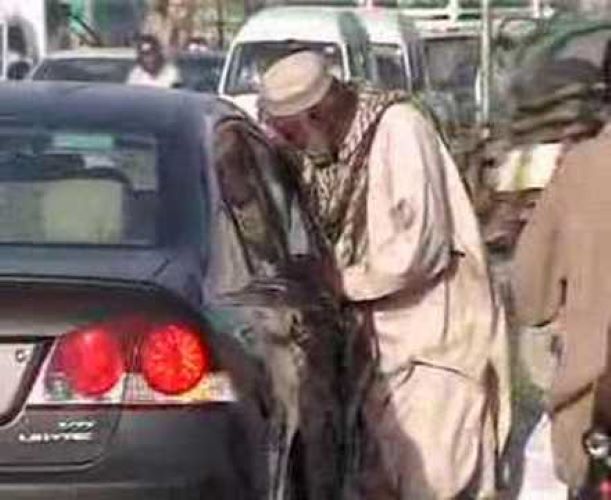
Shockingly, an estimated 3.8 million people resort to begging on the streets, comprising 12% men, 55% women, and 27% children
Zaheer Udin Babar Junejo
In our society, it’s ironic that those who seek knowledge and facts often find themselves sinking deeper into depression. We were taught that our nation was founded on the principle of unity, but as we grew we realized that the government promotes a divide-and-rule ideology.
Take, for instance, Hyderabad in Sindh, where lawlessness reigns, and essential items are unregulated, leading to poor quality and inflated prices. Citizens are left to consume harmful products like milk, food, water, and even life-saving drugs. Adding to this irony is the normalization of begging as a means of survival, if you try to enter a roadside shop you will be surrounded by 8 to 10 beggars of multiple age groups.
 A recent report highlighted Pakistan’s position as one of the top nations in charity giving. However, this generosity often entrenches the marginalized in dependency, with grants, shelters, and free food handouts perpetuating reliance rather than fostering self-sufficiency. Shockingly, an estimated 3.8 million people resort to begging on the streets, comprising 12% men, 55% women, 27% children, and the remainder categorized as “well-off.” The prevalence of begging is highest in Sindh, followed by Lahore, Islamabad, and other cities.
A recent report highlighted Pakistan’s position as one of the top nations in charity giving. However, this generosity often entrenches the marginalized in dependency, with grants, shelters, and free food handouts perpetuating reliance rather than fostering self-sufficiency. Shockingly, an estimated 3.8 million people resort to begging on the streets, comprising 12% men, 55% women, 27% children, and the remainder categorized as “well-off.” The prevalence of begging is highest in Sindh, followed by Lahore, Islamabad, and other cities.
The repercussions of this charity are felt in the form of over 37% annual inflation and a wasted workforce of 38 million people who opt for the streets instead of contributing to national development.
For beggars, Karachi seems like a haven, where they collect an average of 2,000 rupees daily, compared to 1400 rupees in Lahore and 950 rupees in Islamabad. This amounts to a staggering 32 billion rupees extracted from people’s pockets every day, totaling approximately 42 billion dollars annually. This not only perpetuates a cycle of exploitation but also fuels drug sales, child abduction, and street crime.
 The repercussions of this charity are felt in the form of over 37% annual inflation and a wasted workforce of 38 million people who opt for the streets instead of contributing to national development. Alternatively, harnessing their potential through dignified employment could generate an income of 38 billion dollars, propelling the nation towards certainty and prosperity. Bangladesh’s example, where the cessation of the beggar system resulted in $52 billion in reserves within four years, serves as a testament to the transformative power of such a shift.
The repercussions of this charity are felt in the form of over 37% annual inflation and a wasted workforce of 38 million people who opt for the streets instead of contributing to national development. Alternatively, harnessing their potential through dignified employment could generate an income of 38 billion dollars, propelling the nation towards certainty and prosperity. Bangladesh’s example, where the cessation of the beggar system resulted in $52 billion in reserves within four years, serves as a testament to the transformative power of such a shift.
Our political leaders keep promising to transform the state into Medina State, yet it seems the past held more promise than the future. It’s challenging to sustain the motivation of our youth, unsure of when each citizen will truly enjoy the right to a dignified life. We hope for a government that not only governs but also prioritizes serving its people diligently.
Read: Beggary – A silent destruction of the Pakistani Society
______________________
 Zaheer Udin Babar Junejo, based in Hyderabad, is a specialist in Institutional Development, MEAL, and Fundraising. linkedin.com/in/zaheer-udin-babar-junejo-0a30a9152
Zaheer Udin Babar Junejo, based in Hyderabad, is a specialist in Institutional Development, MEAL, and Fundraising. linkedin.com/in/zaheer-udin-babar-junejo-0a30a9152